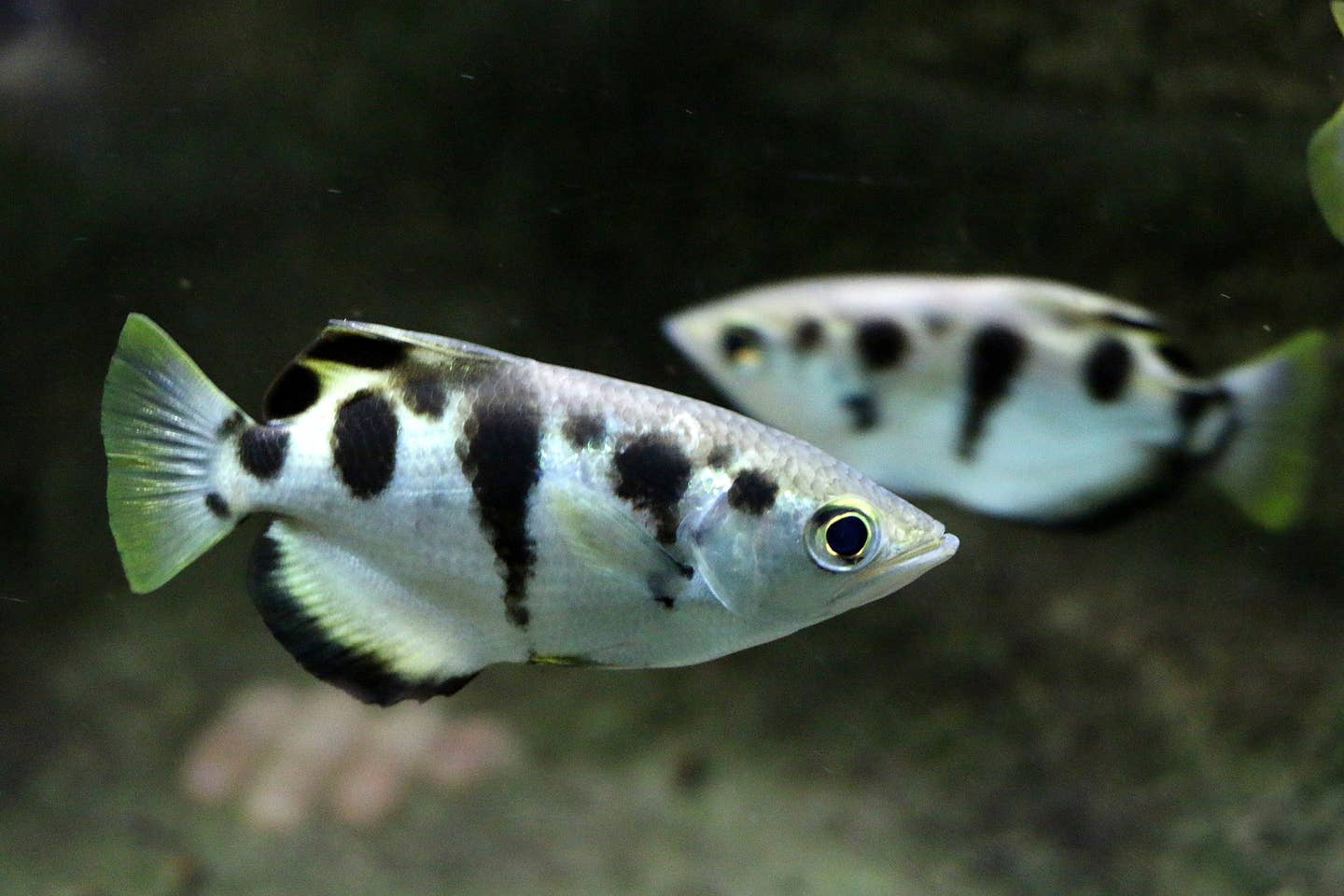Fish can count according to new research on Banded Archerfish
A trio of researchers at the University of Trento, in Italy, has found via experimentation that archerfish can distinguish between numbers.

[Dec 31, 2021: University of Trento]
The researchers taught the fish to spit a stream of water at disks with a certain number of dots on them, such as six. (CREDIT: Creative Commons)
A trio of researchers at the University of Trento, in Italy, has found via experimentation that archerfish can distinguish between numbers. Davide Potrich, Mirko Zanon and Giorgio Vallortigara have published their study on the bioRxiv preprint server, describing experiments they conducted with the spitting fish.
Archerfish capture prey by placing their mouths at the surface of the water and sending a stream of water into the air at a target (such as an insect)—such targets are then overcome by the jet and fall into the water below, allowing the fish to grab and swallow them. Prior research has shown that archerfish also suffer from social inhibition—they are more hesitant in shooting prey when others of their species are watching. In this new effort, the researchers used their spitting abilities to test number differentiation in fish.
The researchers placed the fish in a tank of water and then placed a pair of disks over the top of it. The disks were marked with different numbers of dots. The researchers taught the fish to spit a stream of water at disks with a certain number of dots on them, such as six. They then showed the fish a series of disk pairs with different numbers of dots on them. They found that the fish would only spit at the disks with the number of dots that they had been trained to recognize. The researchers also tried changing the number of dots the fish had to choose from and found that the fish were still able to target the right disk.
Related Stories:
The researchers also tested the fish with differently sized dots and also the area covered by the disks. They found that the fish still spat at only the disk they had been trained to recognize. They then changed things by showing disks that did not have the number of dots the fish had been trained to recognize and found that the fish chose the lower number of dots if the number they had been trained to recognize was lower than the alternative.
The researchers suggest that the fish were able to count the dots to figure out which they were supposed to target.
Note: Materials provided above by University of Trento. Content may be edited for style and length.
Like these kind of feel good stories? Get the Brighter Side of News' newsletter.
Tags: #New_Discoveries, #Global_Good_News, #Mathematics, #Fish, #Research, #Science, #The_Brighter_Side_of_News
Joseph Shavit
Head Science News Writer | Communicating Innovation & Discovery
Based in Los Angeles, Joseph Shavit is an accomplished science journalist, head science news writer and co-founder at The Brighter Side of News, where he translates cutting-edge discoveries into compelling stories for a broad audience. With a strong background spanning science, business, product management, media leadership, and entrepreneurship, Joseph brings a unique perspective to science communication. His expertise allows him to uncover the intersection of technological advancements and market potential, shedding light on how groundbreaking research evolves into transformative products and industries.



